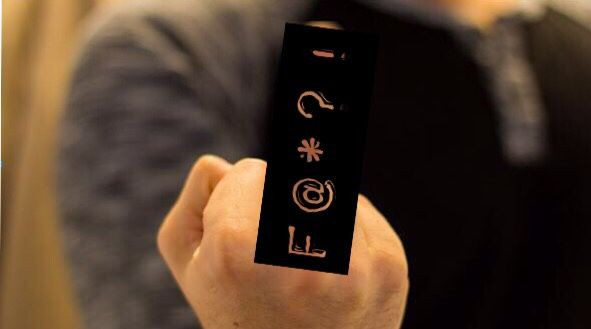Bad Words: People Who Curse And Swear May Actually Have Higher Verbal Intelligence

Don’t you hate it when you miss your f---ing train, or when your friend acts like a complete a--hole at a party? How about when you lose your keys — ain’t that a b--ch? Hearing someone use swear words may bother you, or even suggest to you that they're less verbally intelligent. If that's the case, however, then you may be surprised by the results of a new study published in Language Sciences. According to the research, a lack of verbal fluency has nothing to do with how often people use profanity.
For the study, researchers recruited more than 200 college students aged 18 to 22 to take a Controlled Oral Word Association Test (COWAT). The verbal fluency test is designed to measure spontaneous production of words belonging to the same category. And students completed both written and oral tests in three specific categories: general fluency (standard vocabulary); taboo word fluency (curse words like f--k, s--t, and a--hole); and animal word fluency (words like bird, bat, and tiger).
“Taboo or ‘swear word’ fluency is positively correlated with overall verbal fluency. The more words you generated in one category meant the more words you generated in another category, orally and verbally,” Dr. Timothy Jay, of the Department of Psychology at Massachusetts College Of Liberal Arts and author of the study, told Medical Daily.
The animal fluency portion of the COWAT test is a semantic category that produces more words than the swear word category. As an extra semantic category, it allowed researchers to compare fluencies and better identify a positive correlation between them.
Jay wanted to dispel the idea that people who swear do so because they have a bad vocabulary. He cited one study that found speakers who used profanity were rated lower in terms of socio-intellectual status than speakers who were more restrained. “It’s part of your emotional intelligence to know how and when to use these words. If you’re thinking about it from a moral perspective, you’re missing how common and normal it is. Everybody knows this language,” he said.
Taboo words, like the F-word, elicit emotional and connotative uses in many different ways. Swear words are grouped not only based on their meaning, but also based on their negative connotative valence — basically they're intense emotional expressions that aren't always well-received. A separate study Jay cited found college students frequently use taboo words; an interesting finding considering the verbal acumen of college students is reportedly higher than average.
In Jay’s study, however, being fluent in taboo words was positively correlated with other measures of verbal fluency, undermining this common myth about taboo words. Speakers who use taboo words understand their expressive nature and nuanced distinctions, implying the presence of more apt linguistic skill. Not to mention other studies have found swear words can double as a pain reliever.
“The research has gotten a lot of attention because it confronts the prejudice against offensive language that’s been around for 300 years. Kids swear, it’s normal for people to know how to swear,” Jay concluded.
Source: Jay T, Jay K. Taboo Word Fluency and Knowledge of Slurs and General Pejoratives: Deconstructing The Poverty-Of-Vocabulary Myth. Language Sciences. 2015.



























